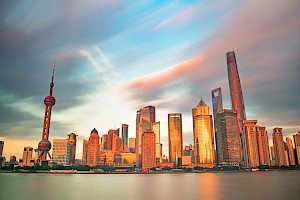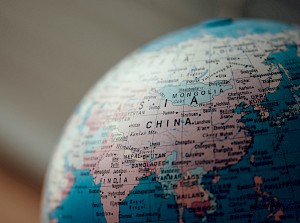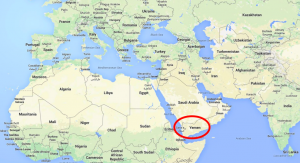Billionaires Respond to “Who Wants to be a Billionaire ? I Don’t.”
March 11, 2020Defensive, uncomfortable, agreeable (with conditions), but mostly supportive. That’s how I would describe the responses from my wealthy friends regarding an article I posted a few weeks ago. The piece was meant to provoke thought around the reality of life as a billionaire. As it turns out, I have quite a few friends I would describe as billionaires, so I thought it would be fun to forward the article and see what kind of reaction it would generate. Note that in doing so, I didn’t ask their permission to publish their responses so I won’t name any names here. I’m sure if I had formally asked for a quote I’d have received less candid answers.
The cheekiest response came from a friend who likely only read the headline and saw the image of a mega yacht I used to depict the ultra-rich. His text read, “Nice boat”. Later when we spoke, he admitted he had spent his life focused on building his wealth and is only now, at over 60 years old, turning his attention to giving. He is in the process of considering what specific cause to support. I advised him to think hard about what he cares about. That way he will have the passion needed to make it his lifelong purpose.
 Another business associate who made his fortune in the mining sector and who I admire greatly said, “I don't really consider my money mine. I'm working for my foundation and it's important for me to make as much money as I can because I feel there are so many people wanting to make a change who have energy but need the "oil" to lubricate their dreams and hard work. I provide the oil and they do the work. That's my ecosystem.” Not everyone can be hands on when it comes to their giving. I think it’s perfectly fine to focus on making money and let others figure out what to do with it. Think Warren Buffet, who acknowledges that his strength is being a businessman and allows Bill Gates to worry about putting the money to good use.
Another business associate who made his fortune in the mining sector and who I admire greatly said, “I don't really consider my money mine. I'm working for my foundation and it's important for me to make as much money as I can because I feel there are so many people wanting to make a change who have energy but need the "oil" to lubricate their dreams and hard work. I provide the oil and they do the work. That's my ecosystem.” Not everyone can be hands on when it comes to their giving. I think it’s perfectly fine to focus on making money and let others figure out what to do with it. Think Warren Buffet, who acknowledges that his strength is being a businessman and allows Bill Gates to worry about putting the money to good use.
I have found that the philosophy behind modern philanthropic giving is an almost unique North American concept. In many parts of the world, the custodians of wealth see their role of providing jobs and income to their community as a form of “giving”. This patriarchal approach came across from a response I received from a South American friend. The essence of his reply was, “Wealth has to be seen as a responsibility, not a privilege. Business people are just temporary managers of the wealth of society, that should be managed efficiently to create prosperity for many, mainly through reinvestment and employment.”
He went on to argue, ”if distributing wealth would solve poverty in a sustainable way, that would be great. But in the long term the only solution is to create more and better opportunities for people, and giving people the tools to access those opportunities.“ He has points I generally agree with, and I have no problem with wealth built by investing capital in the formation of industry which contributes to the real economy. But today, most new wealth is a function of access to free money by the rich and rampant speculation.
I have a septuagenarian friend who is a great libertarian. He is absolutely brilliant, but I constantly feel the need to challenge his views . A libertarian is someone who believes that it should be every man for himself and that government should just get out of the way completely. In theory that might sound great, but unfortunately, “opportunity“ is not evenly distributed in this world. His reply was supportive except for one thing: “My disagreement is with the use of the word “excessive”. How exactly is that defined? And who gets to decide what it is? Almost always that’s people in government—but they’re the last ones who should do that. Why? Because the state is an instrument of coercion, and coercion is never good. And people that are drawn to the state are the types who are more interested in controlling other people than controlling physical reality. Never a good thing.”
He went on to explain how America’s style of capitalism has run amuck: ”The problem is what we have is classical Mussolini-style fascism—not capitalism. Capitalism is based on 100% private property, voluntarism, and free trade. Socialism is based on public ownership of the means of production. Fascism is about a so-called public-private “partnership”, complete with lots of taxes, subsidies, tariffs, regulations, monetary policies, and the rest. It looks like capitalism on the surface—the institutions of capitalism still exist. But it has the ethical beliefs of socialism. You’re right that it seems capitalism has run amuck—because it’s not capitalism. It’s a huge mistake to conflate the meanings of words.”
He is not wrong about the style of capitalism that exists. But I am not sure pure capitalism ever truly existed in the first place.
He concludes by saying “Billionaires are wonderful for society in lots of ways. Better at allocating capital than say, governments or NGO’s .They’re only a disaster when they get their money by being cronies.”
Unexpectedly, the tersest reply I received came from a very old friend of mine who is fabulously wealthy and has generously given a lot back to society. He firmly believed that a ”world without billionaires would be a much poorer world as Bill Gates, Bezos, Musk etc have made the world a better place.”
When I pointed out that he might have missed my point and that I was referring to excessive, unjustified wealth, he snapped back, suggesting I sounded ”like a bleeding heart socialist.” He went on to say that “history is replete with excesses and it always manages to self-correct, which is what will happen again in the next financial meltdown.” Judging by the stock market performance recently, he may be right. I am thinking we are about to mint an entire generation of ex-billionaires soon.
The absolute best response came from a good friend who is world-renowned businessman. It warmed my heart. He thanked me for the article and told me about a decision he has made with his kids recently: They would set aside an amount that ensured the security of his children and grandchildren and the balance (by far the bulk of their wealth) would go into a foundation that the kids would manage to make the world a better place. “Having taken so much of their inheritance away, I have never seen them so excited”, he told me. He encouraged me to keep writing on the subject, hoping that other like-minded wealthy people might get on board to this way of thinking. That made my day.
There are many valid points of view. The point I was trying to make with the original article was that something is profoundly wrong with wealth inequality today. If it served no other purpose, I at least hope my article stirred some debate on the subject and nudged people to think.










